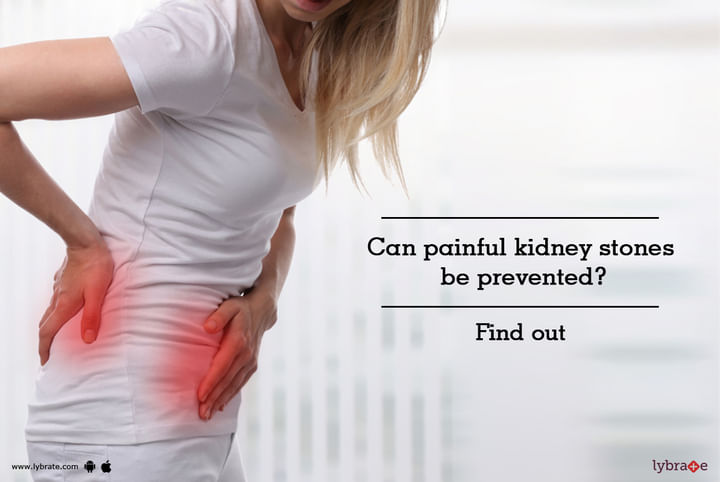Can Painful Kidney Stones Be Prevented?
Kidney stones form due to the accumulation of dissolved minerals on the inner lining of your kidneys. Usually, these are made up of calcium oxalate, but may also consist of other compounds. Kidney stones vary in size and some may grow as large as a golf ball. When they are small, they may pass through the urinary tract unnoticed but while leaving the body, they can cause excruciating pain.
Types and Symptoms
Among the several types of kidney stones, the most common ones are –
- Uric acid stones
- Calcium stones
- Cystine stones
- Struvite stones
Occasionally, the stones get stuck as they enter the bladder system, causing symptoms such as the following –
- Frequent urination
- A persistent urge to urinate
- Acute pain in/around the groin
- Pus/blood in the urine
The stones that are not excreted and remain trapped inside the body can lead to several complications, including obstruction of the tube that connects your kidney to the bladder – this blocks the passage through which urine comes out.
Ways to prevent the formation of painful kidney stones
The good news is that this painful condition is preventable, and the best way to do it is by making some healthy choices. A combination of dietary and lifestyle changes can minimize your chances of developing kidney stones.
Here are a few tips –
- Drink enough water– Drinking plenty of water helps dilute the stone-forming substances found in the urine. Aim to drink at least 6-8 glasses of water and fluids. Consume citrus fluids to hydrate yourself and prevent kidney stones. Not consuming enough liquids will result in low urine output, which in turn will lead to concentrated and less likely to dissolve salts forming kidney stones.
- Get your dose of calcium – Not getting the requisite amount of calcium can cause oxalate levels to increase and form kidney stones. Therefore, ensure that you are taking in just the right amount of calcium in your diet, appropriate for your age. Calcium-rich foods such as cheese, yoghurt, low-fat milk and other dairy-based products reduce your chances of kidney stones.
- Reduce sodium intake – A sodium-rich diet increases the risk of kidney stones. The presence of excess salt in urine prevents re-absorption of calcium in the blood. Cutting back on sodium can help keep the level of urine calcium in check.
- Limit your intake of oxalate-rich foods – Oxalate is a natural compound found in foods like spinach, sweet potatoes, coffee, and peanuts. It binds with urine calcium to create kidney stones. Limit the consumption of such oxalate-rich foods.
- Eat less animal protein – Avoid eating animal proteins like beef, poultry, pork and fish, as such foods are acidic in nature and are likely to increase uric acid – one of the major reasons of kidney stones.
Apart from these, you should also focus on staying physically active, and getting rid of ill habits like smoking to prevent stones. However, if you experience recurrent kidney stones, you might have to turn to immediate medical care.


+1.svg)
